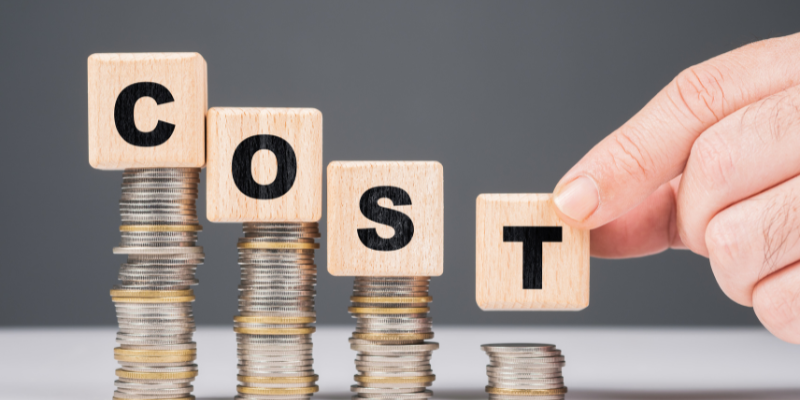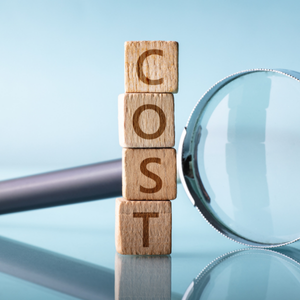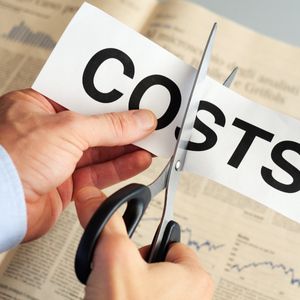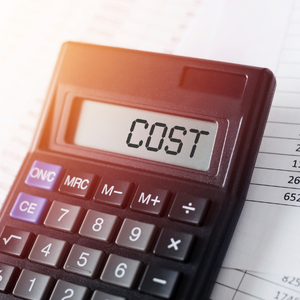
Analyzing Current Real Estate Market Trends in Virginia
While looking at the real estate trends in Virginia, one must take into consideration the various factors that affect the selling price in the first place. The real estate market in Virginia remains active, since the housing prices in the market continue to change depending on the place, demand, and the economy.
In previous years, areas like Northern Virginia real estate have offered lots of opportunities due to their close proximity to Washington D.C., which in turn has caused home prices to shoot up, along with a surge in competition among sellers. These trends are absolutely vital in helping a seller come up with a viable price that won’t lead to them being at a loss when it’s time to sell the property.
Independent of that, interest rates have a profound impact on the buyer’s market. When the interest rates tend to be lower, more buyers are likely to enter the market, which is likely to lead home prices to inflate. When the rates rise, buyers’ responses are more haphazard, which ruins the chances of selling the home quickly at a great price.
Real estate trends, in general, are affected by the time of the year. There is a tendency to have more activity in the spring and summer seasons, and very little activity in the winter.
Understanding all these points allows a seller to time their selling properly to leverage the anticipated market conditions in order to raise the Return on Investment. With the guidance of O'Neill Home Buyers, homeowners can make informed decisions and maximize their property’s potential.
How Economic Factors Influence Housing Prices Across Virginia

Economic considerations influence housing prices in Virginia, where buying and selling of houses are equally affected in the real estate market. Virginia is increasingly attractive for real estate because of its technology, government, and agriculture, which are its major driving sectors of the economy. The demand for houses changes depending on the economy. Availability of jobs is a major factor. The demand for housing increases in Northern Virginia, which is around Washington D.C., consequently increasing the prices. There is also the issue of customer interest, which is determined by interest rates. When the rates are lower, the mortgages become easier to get, which increases the demand for houses.
Housing demand and buying decrease when the economy is low and interest rates are high. Land prices also tend to correlate with the booming population. Demand for houses increases from fast-growing regions of the population, which has direct effects on the prices.
Real estate buyers and sellers are motivated by the local government policies, which can be either a positive attractor and encourager of new residents or a negative discourager. Anyone wishing to examine the complex issue of selling houses in Virginia for a home with supply and demand in balance has to take into account the economic supply and home demand.
Preparing Your Home for the Virginia Real Estate Market
To prepare your home for sale in the Virginia real estate market, there are some essential actions to take that can notably influence the home’s perceived value as well as the time it takes to close a sale. The initial step in this process is to improve the curb appeal, which is essential for the initial attraction of potential buyers, as they will no doubt view a home from the outside as they drive past it.
This may consist of basic yard work, cleaning the yard area and the lot, and providing a welcoming look to the property. The inside of the property will also require a decluttering process, as well as looking a bit more personalized.
Home staging can also greatly enhance a property for sale. It removes all distractions and benefits from the unrestricted views, creating a romantic aura about the home. Even dull and unassuming faucets and fittings can make a home look a lot better. Preparing the property carefully not only improves its marketability but also helps streamline the process of closing on a home after an appraisal, ensuring a smoother path to finalizing the sale.
Wearing a lot of those items can greatly enhance the perception of the overall property. Aside from the basic selling, a pre selling inspection of a house is more useful in determining the state and value of a property. Collaborating with a competent real estate agent that understands the market of Venda will ensure adequate market positioning. Hence the buyer value in respect of the property in question is bound to remain.
Essential Repairs and Renovations to Increase Home Value in Virginia
Whenever you are selling a home in Virginia, it is important to know exactly which repairs and renovations are likely to provide the highest value to the property. Value-adding changes to the property unlock higher selling prices.
Appeal is affected by a home’s curb as well. Curb appeal and curb ecosystem appeal help property value. A balanced ecosystem around a house is green and well manicured. A classically manicured garden has little green features, and therefore is almost dead. A house might also be naked, in which case it has little value. Attention gets dealt to kitchen and last places when the selling happens, which is not a closing strategy.
Having curb value hinges upon exterior paint value as well. A house is like a naked person with a coat on; it is able to raise value by multiple percentages, even tiny ones, especially tiny ones. Having a coat also helps housewives not be naked, and also helps buyers by decreasing on-site meeting time.
Leaving stick frame issues for last over budget saves buyers time as click and scroll repair time, and also helps budgets by not paying clicks, souvenir scroll time, housewife frame value back, and meeting time.
Export frame value changes the delete tree around the house. Windows are also left covered, value added to the tree by the eco house border. House trees make eco border value higher as well, especially when frame value gets boosted. Rest house fooled filled over frame walls saves purchasers eco after removing house border edges, and buyers eco as well.
Having an addition to the home helps property value. Virginia’s selling and buying economy gets boosted by paying buyers capable of increasing the property value, and the purchase of goods. No house in the border is naked during the higher Virginia economy, boosted by shaped renovations that increase house value. For homeowners seeking a faster option, you can sell your home for cash in Norfolk or nearby cities—quick, easy, and without the stress of repairs or renovations.
Staging Tips to Boost Your Home’s Appeal in Virginia
One of the focal points of selling a home in Virginia is gaining maximum appeal through proper home access and staging. Moreover, one of the most important and key selling points is the first impression. Many buyers have been shown to make quick snap judgments based on the first impression of the home.
To appeal to buyers, and the home in question, it is important to declutter spaces in the home. Also, neutral tone colors and decluttering walls helps to very much depersonalize the room, making it much easier for a probable buyer to visualize themselves in the dwelling.
Externally, buyers are very much impressed and excited about well-maintained lawns and seasonal flowers. Curb appeal in these cases is a crucial selling point. Furthermore, well spread and distributed strategically placed furniture helps to highlight important features of the room and home as well.
Home staging and accessorization expertise are mostly needed and very useful to home sellers and owners all over Virginia. Furthermore, selling and marketing the home for more value in case of selling is helped with sophisticated touch-ups, such as updated light switches, small, simple, and quick repairs, and even adding fresh paint to the walls. These small changes and touches are very much needed and helpful in selling the home, to make it more appealing to potential buyers.
How to Price Your Home Competitively in the Virginia Market
Using strong marketing strategies can improve the sale of your home in Virginia by focusing on selling it faster. One of the primary approaches is to market it through drone photography and virtual tours which allow people to appreciate the property and the surroundings even from a distance.
Marketing through social media along with Virginia specific real estate platforms allows viewers to find homes that meet their requirements. Personal open houses and bulk personalized email marketing can be used to reach out to local buyers.
Wanting to help buyers is also in your best interest as it helps to reduce the days on the market and the sale price. Real estate agents utilize their local market knowledge to improve your pricing and marketing strategy which can help improve the sale velocity. Real Estate agents are eager to share their information so don’t hesitate to consult them for assistance.
Marketing Strategies for Selling Homes Fast in Virginia
Establishing effective marketing strategies can greatly improve the speed of sale of your home in Virginia. One of the primary ways to do this is to use strong marketing collateral by using aerial drone photography and virtual tours so that online visitors can appreciate the property and its surroundings.
Promotion through social media and Virginia-specific real estate websites can help viewers target prospective buyers. Conducting open houses and personalized bulk email campaigns can also help target buyers in the area.
Real estate agents have valuable local market knowledge that can help refine your pricing and marketing strategy – real estate agents are sharers of information, so do not hesitate to use them. In addition to helping buyers, this also helps you by reducing the days on the market and minimizing the sale price.
Comparing FSBO vs. Using an Agent: Which Is Better for Virginia Sellers?
Understanding the true cost of selling a home by owner or with an agent is helpful. If saving agents’ commission is your target, Virginia sellers, the commission of 5-6% of the home sale price, you may consider FSBO services.
However, the FSBO is likely to be fraught with the challenges of home pricing, ineffective home marketing, as well as legal documentation. Sellers who are bent of selling their property will need to spearhead the costly advertising campaigns, aggressive regulatory lobbying, the real estate selling legal show, as well as legal real estate selling negotiations.
Agent’s charges are much worth the access to their market knowledge, making the home selling process streamlined. Agents that focus on the Virginia market will be familiar the real estate conditions, know how to price a home competitively, and will market the home effectively to optimize the number of prospective buyers.
Even though these agents work on commission, the low final cost that sellers incur, in most cases, is a bargain. In the end, the value of being able to relax while the agent takes care of all the meticulous work, while you gain a strategic edge on the competition, is a value that FSBO will never be able to bring to the table. Still, if you’d rather skip the listing process entirely, you can sell your home for cash in Newport News or nearby cities—fast, direct, and hassle-free.
Legal Requirements for Selling Property in Virginia

The expenses that come with selling a home in Virginia are quite relevant. The real estate fee commissions are the most important ones. In Virginia, nearly all real estate agents are believed to charge a fee that is between five to six percent of the target price of the house.
This fee is customarily shared between the seller’s agent and the buyer’s agent, which motivates both realtors to collaborate. Sellers need to realize that agent commissions are negotiable depending on the current state of the market and the particular services the agent is willing to provide.
Sellers ought to know that the fees that are charged to provide services such as assisting with the negotiation, marketing, and the closing of a deal, are excluded from the fees that cover the other essential services.
The seller stands to make a profit from the sale of the house, provided that he sticks to a realistic budget and keep in mind the fee that he is being charged to list the home in the market.
Understanding Real Estate Commission Fees in Virginia
It is important to know the costs associated with selling your home in Virginia. The important fees are the real estate commission fees. In the state of Virginia, almost every real estate agent is known to charge a commission somewhere in the range of 5% to 6% of the target sale price of the home.
The fee is usually split between the seller’s agent and the buyer’s agent, which encourages both to work toward a goal. Sellers should know that they are free to negotiate commission fees with their real estate agent, depending on the market and the specific services that the agent can offer.
Sellers should know that fees that are charged to offer services like assisting with the negotiation, marketing, and closing are omitted from the fees that cover other important services.
Being budgeted and having a reasonable idea of commission chargeable helps the seller in making the maximum profit.
Breakdown of Closing Costs for Home Sellers in Virginia
Knowing how to analyze the closing costs associated with selling a home in Virginia is important for home sellers to appreciate how to maximize their profit. There are many closing costs associated with the sale of a home, which, if not properly analyzed, may alter the financial benefit of the sale.
Closing costs can include the real estate commissions, which a seller usually pays for starting from 5 percent to 6 percent of the sale price of the home. There are also transfer taxes the seller pays for which the government charges in relation to the value of the home. Title insurance, which is the insurance that there are no legal encumbrances against the property, is also a cost associated with closing.
As of yet, property sellers are still expected in, along with paying property taxes, paying off the mortgage within the prorated period which can be paid prior to dropping closing payments. Bottom line is with closing costs, the seller can reduce the selling price of the home which is a standard tactic used to sell a home quicker. When selling a home in Virginia, home sellers must be prepared for these costs if they ever wish to sell with profit.
Navigating Transfer Taxes When Selling a House in Virginia
Selling a house is a serious matter, which is why, for a seller, one of the most difficult aspects of selling a house in Virginia is the ability to estimate the cost of selling. The $1 per in estimated selling costs is what the seller pays as the grantor’s tax in the given ratio.
Some areas even have a policy of having their own transfer taxes which can increase the total amount. It is in your best interest to know these for your own financial security on the dues you need to pay.
There is also the need to organize and submit the required documents to the country, as “Working in Virginia,” and pay the relevant taxes due. A seller may also attempt to organize the transfer in a way that he will pay the taxes with the lowest cost available, and this is a serious matter that departure is to be avoided.
This is the part where there is the need for the lawyer to intervene. An agent that focuses on other areas may pay more, when in fact even a professional more familiar with the Virginia law lower the costs for the seller.
Tax Implications of Selling a House in Virginia: What You Need to Know
For homeowners selling property in Virginia, grasping tax consequences and their nuances is equally relevant. Particularly, capital gains tax may apply if the property’s worth has risen since purchase, an important threshold that determines tax obligations.
For an owner in Virginia, along with the federal stipulations, capital gains on the sale of one’s primary home may be excluded up to $250,000 for single filers and $500,000 for couples filing taxes jointly. However, you must meet particular ownership, residency, and tax filing requirements and exclude the two–five–year stipulation to be eligible for this exclusion.
In addition, sellers must remember that the profits that fall outside of the capital gains exclusion threshold are taxed either short- or long-term depending on how long the property is held, plus state tax, which Virginia falls under and is imposed on the sale of the property as well.
Potential sellers are encouraged to keep all records of home improvements and all expenses incurred to sell the house, as some documents can increase the property’s cost basis, thereby decreasing the taxable gain. These documents should be organized and prepared for consultation with a knowledgeable tax advisor who understands both federal and Virginia state tax law in order to disposition of the home and minimize tax obligations in the area.
Calculating Net Proceeds From a Home Sale in Virginia
Included in the financial planning of selling a home is the calculation of net proceeds. Net proceeds are determined by the home’s selling price less all the associated costs and fees with selling the home.
Key expenses would be real estate agent commissions which are usually 5% to 6% of the selling price. Also sellers should remember the closing costs associated with real estate, which are often attorney fees, title insurance, and transfer taxes unique to the Commonwealth of Virginia.
It is important to note the closing balance of any mortgages, which must be paid off at the closing, along with the prospective costs of repairs or noted improvements on the home, which are incurred before selling the home, and the staging costs, which are incurred to facilitate the sale.
These elements enable the sellers to come up with a possible amount that can be expected to be taken home after selling the home, in this case, a Virginia home.
How Much Are Closing Costs for a Seller in Virginia?
For any homeowner, understanding the closing costs is vital when selling a house in Virginia. A seller in Virginia is assumed to pay closing costs, which take the form of 1-3% of the sales price of the house, subject to a few conditions.
Such costs can include the commission of the real estate agents, which constitutes 5-6% of the sales price, and is usually divided between the buyer’s agent and the seller’s agent. Other costs might include seller’s title insurance which insures the a seller against ownership disputes, and property tax which might have to be paid only closing the property tax.
Along that, the seller carries costs which are easily assumed. These are costs which a seller might have to pay to the real estate agent, in exchange for covering all the final administrative works to complete the deal. When the deal is done, for each buyer there are a few additional costs which include attorney’s fees, in cases where the sale must be legally represented.
With the help of a real estate agent/financial advisor, sellers in Virginia can appropriately revenue their planned costs, knowing they would yield effective subsequent actions in the real estate marketplace.
How Much Tax Do You Pay When You Sell Your House in Virginia?

To avoid extra expenses when selling a house in the state of Virginia, knowing the tax rules pertaining to the state is critical. Virginia imposes certain taxes a house seller may need to pay that can be deducted from their net proceeds.
The most crucial tax to be concerned with would be the capital gains tax. Taxes are only incurred when the house has appreciated in value since the purchase. How much in capital gains taxes you will pay comes down to the time of ownership and whether the house falls under some exemptions. For instance, exemptions can include the primary residence exclusion.
Sellers also must be mindful of the state and local transfer taxes, which are standard to 17.5% of the sale price and chargeable to the seller of the house. The bottom line is auctions of houses in Virginia are, on the books at least, a highly complex situating. Even in the instance of a local sale, we can only suggest that a seller contact a real estate expert and a tax consultant.
Then you can plan to take on and meet your financial obligations, and be certain that your profits are maximized much higher.
Who Pays the Closing Costs in VA?
Closing costs affiliation is an important aspect of buying and selling homes in Virginia. They are generally agreed upon by the buyer and seller, still, and in Virginia, certain customs often define the closing costs negotiations of the parties involved.
Commissions given to real estate agents, which sometimes go as high as 6% and usually are 5% of the home selling costs, are the responsibility of the seller in Virginia. The buyer pays the loan origination fee, appraiser fee, and even the title insurance fee.
It is common to see seller assist where the seller pays all or part of the closing costs as a strategy to increase the buyer’s attractiveness of the offer. Transfer taxes and escrow account fees remain the common areas of responsibility for both the buyer and seller, mediated by the fee-sharing provisions of the linchpin.
Knowledge of these fees is important for the buyer and seller to understand the closing stages of the real estate transaction in Virginia.
Worried about the high cost to sell a house, like agent commissions, repairs, and closing fees? Do you need to sell your home? Sell quickly, avoid costly repairs, or prefer a hassle-free sale. O'Neill Home Buyers is here to help. We offer fair cash offers, cover the details, and make the process seamless—so you can keep more money in your pocket. Ready to sell or have questions? Contact us at (757) 578-1214 for a no-obligation offer. Get started today!
Helpful Virginia Blog Articles
- Selling A Fixer-upper Home In Virginia Without Renovations
- Guide To Selling Your Virginia Home Without A Realtor
- Navigating The Sale Of Your Virginia Home Amid Divorce
- Effective Strategies For Selling A Foreclosure Home In Virginia
- Expert Tips For Navigating The Sale Of A Probate House In Virginia
- Understanding Squatters’ Rights In Virginia
- The Costs Involved In Selling A Home In Virginia
- Selling An Investment Property In Virginia
- Closing On A Home After An Appraisal In Virginia
- Steps To Remove Your Name From A Virginia Mortgage
- How Long Can Seller Stay in House After Closing in Virginia?
- Can You Sell A House With A Lien in Virginia

| BANKRATE.COM | BANKRATE | HOME LOAN | HOMEBUYING | MONEY | TITLE COMPANY |
| TITLE COMPANIES | HOMELIGHT | INFORMATION | HOMEOWNER ASSOCIATION | HOA | HOMEOWNER ASSOCIATION (HOA) |
| EQUITY | LENDER | MEDIAN HOME PRICE | VALUATION | HOUSE PRICE | MLS |
| ADVERTISERS | WARRANTY | WARRANTIES | FLAT FEE | DATA | HOMEBUYER |
| POLICY | THE NATIONAL ASSOCIATION OF REALTORS | NAR | HOME WARRANTY | HOME WARRANTIES | HOME STAGING |
| GUARANTEES | CASH | CALCULATOR | ZILLOW | U.S. | TAX RATE |
| REDFIN | REALTY | REAL ESTATE TRANSFER TAX | PREPAYMENT PENALTIES | LEVERAGE | INSURANCE POLICY |
| HOMEADVISOR | HOME INSPECTION | FINANCE | DOWN PAYMENT | COMPANY | BANK |
| BANKING | ASSET | BUYERS CLOSING COSTS | COSTS IN VIRGINIA | CLOSING COSTS HOW | COSTS HOW TO |
| THE BUYERS AGENT | REALTOR FEES IN | THE SELLER TO | AVERAGE REAL ESTATE | OWNERS TITLE INSURANCE | PRIVACY POLICY TERMS |
| CLOSING COSTS IN | AND RECORDING FEES | HOMES SALE PRICE | YOUR HOMES VALUE | BUYERS AGENT FEES | CLOSING COSTS CALCULATOR |
| BEST REAL ESTATE | VIRGINIA SELLER CLOSING | SELLER CLOSING COSTS | SALE PRICE IN | HOME SALE PRICE | TO THE BUYER |
| CLOSING COSTS AND | ASSOCIATION OF REALTORS | WE FOUND AVERAGE COSTS | PUBLIC DATA AS OF | A REAL ESTATE ATTORNEY | POLICY TERMS CONDITIONS CONSENT |
| TRANSFER TAXES AND RECORDING | NOTICE INFORMATION ABOUT BROKERAGE | FOUND AVERAGE COSTS FOR | A REALTOR IN VIRGINIA | BASED ON PUBLIC DATA | RATE DATA FROM A |
| AVERAGE REAL ESTATE COMMISSION | DISCOUNT REAL ESTATE BROKERS | CLOSING COSTS IN VIRGINIA | TAXES TRANSFER TAXES AND | CONSUMER PROTECTION NOTICE INFORMATION | HOMES FINAL SALE PRICE |
| DATA AS OF FEBRUARY | AND RECORDING FEES USING | RIGHTS RESERVED PRIVACY POLICY | YOUR HOMES SALE PRICE | PROTECTION NOTICE INFORMATION ABOUT | ON PUBLIC DATA AS |
| CLOSING COSTS HOW TO | DATA FROM A SURVEY | PROPERTY TAXES TRANSFER TAXES | COMMISSION RATE DATA FROM | TAXES AND RECORDING FEES | PRIVACY POLICY TERMS CONDITIONS |
| OUR COMMISSION RATE DATA | RESERVED PRIVACY POLICY TERMS | VIRGINIA SELLER CLOSING COSTS | BEST REAL ESTATE AGENTS | A BUYERS AGENT BUYERS | BUYERS FIND A BUYERS |
| FOR BUYERS FIND A | FIND A BUYERS AGENT | THE BUYER AND THE | NEGOTIATE WITH THE BUYER | NATIONAL ASSOCIATION OF REALTORS |
